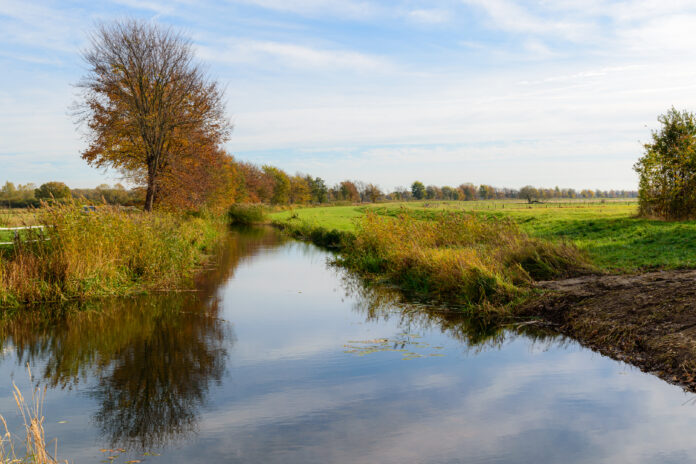The Netherlands is the “drain of Western Europe,” researcher Peter Schipper tells RTL Nieuws, and less than 1% of surface water is deemed clean. Yup, you read that right: The pioneers of water management have the dirtiest water in Europe.
The consequence? Hefty fines. Should Dutch waters not meet European requirements by 2027, they’ll face fines of tens of millions of euros PER YEAR. Yikes! 😬
Should we be worried?
Nee but also ja. First things first: No, this does not apply to the lekker Dutch tap water — that’s perfectly A-OK.
However, a report by Natuurmonumenten (a Dutch conservation agency) has shown that the water ecosystem of the Netherlands is not doing well. AT ALL. The situation is dire, and the pollution is not decreasing.
READ MORE | Maas River may not be usable as drinking water source in near future
By 2027, the bodies of water designated by the Dutch Water Framework Directive (Kaderrichtlijn Water) must meet a set of goals. These goals concern the rivers Ems, Rhine, Meuse and Scheldt.
But experts are pessimistic: “We’re not going to make those goals,” Peter Schipper from Wageningen University tells RTL Nieuws.
So what’s wrong with the water?
According to Natuurmonumenten’s report, various things are wrong with Dutch surface waters.
They are polluted with chemicals from agriculture and industrial operations, and have nutrient loads (of nitrogen, phosphorus, and other elements) that are too high.
Further problems are caused by the too-rapid disposal of water and the removal of too much water from groundwater sources.
The root of the issues, as Peter Schipper explains, are the Netherlands’ agriculture, industry, transport, and high population density — all of which are adding pollution to the water.
2/2 There is no other country that knows more about this engineering than the Netherlands, and I can see a lot of problems with having a road over the water, and I’m not even a civil engineer – road dust and debris going into the water pollution to name just one.
— Rafe Zetter (@ZetterRafe) September 25, 2022
On top of its own pollution, as “the drain of Western Europe,” the Netherlands has to accommodate contaminated waters that flow into the country from abroad. Ah yes, let’s blame Duitsland (Germany)! 😉
Bleak outlook
It’s becoming clear that water pollution is taking its toll on the Netherlands, and will heavily affect not only its animals and plants but also its future generations.
“We are burdening the next generation with a crisis,” says Piet Verdonschot from Wageningen University, “too little has been done in recent years.”
So, what can we do? Address the root of the problem: Instead of removing substances from the water, the Netherlands will have to make sure that they don’t get into it in the first place.
To do so, politicians need to start prioritising the quality of the water, by making demands and imposing stricter restrictions on the environment.
What do you think about this alarming report on Dutch waters? Tell us in the comments!

If you want to really see the most polluted rivers, come to Bulgaria!
Speaking of “drain”, the Netherlands could probably do more in Brussels to make “international” rivers cleaner. Countries must ensure that the rivers leaving their borders are extra clean.
But it’s not quite clear from the article if the main issue is that the Netherlands are housing deltas of long rivers or that the rivers get contaminated within our territory.
True! It’s not an “out of sight, out of mind” thing! We need to treat the future with much much more effort
Given the amount of untruths coming from both the Dutch Government, Brussels and the traditional media without an open discussion one cannot believe the everything they say. An open discussion with various experts including outside of the above sources is needed.
The Dutch people cannot and should not be held responsible for Germany and Switzerland’s lack of controls.
Not suprising. Me and a friend of mine noticed that the rivers, cannals and small water accumulations were very dirty first thing when we arrived in Rotterdam. Thanks for the article!
This article was such a pleasure to read! Keep going! And I hope the Netherlands are going to take action immediately because there are definitely more and more people like us, who are concerned about the future! All the best Lyna, greetings from Amsterdam!